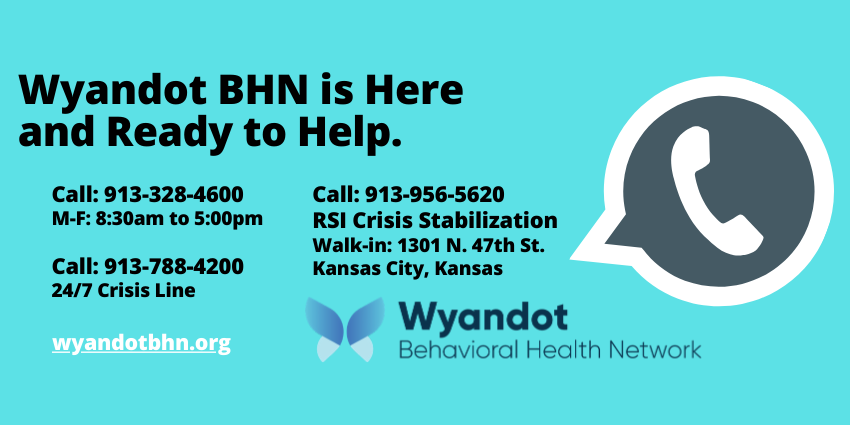
COVID-19 changed lives in many ways, including altering how Wyandot Behavioral Health Network provides service. When the pandemic began to affect the Kansas City area, our staff made the quick shift to offering telehealth services so we could continue to support our community through this challenging time.
In a survey of our clients who utilized telehealth services during the pandemic, it became clear that the shift to telehealth was a needed one. Many of the people we serve stated that while the transition to telehealth was challenging for them, it was a better option than not having access to services at all, particularly during a time when they needed someone to talk to. COVID-19 has led to feelings of anxiety and isolation for many people. Our providers stress that connection is key for everyone’s well-being during this time.
Our staff says there is a learning curve for both sides when it comes to telehealth. Providers acknowledge that, at first, telehealth services may seem a little strange and less warm than traditional face-to-face appointments. However, they say those feelings subside after a few sessions as both sides become accustomed to the new format.
Clients say it has been important to them to have someone to talk to during the pandemic. The telehealth appointments, provided via telephone or ZOOM videoconferencing, offered them an opportunity to talk openly with their therapist or case manager without having to leave home. Nearly 90 percent of the people we surveyed said they were satisfied with telehealth and found it helpful. Additionally, 25 percent said if telehealth were an option in the future, they would prefer it over traditional face-to-face appointments.
While telehealth may not be the ideal fit for everyone, our providers say the technology can be beneficial for some individuals who may feel more at ease in their own home or who have transportation limitations. Telehealth is allowing our staff the opportunity to check in with the people we serve to see how they’re managing their symptoms, normalize their feelings, and help connect them to needed resources.

